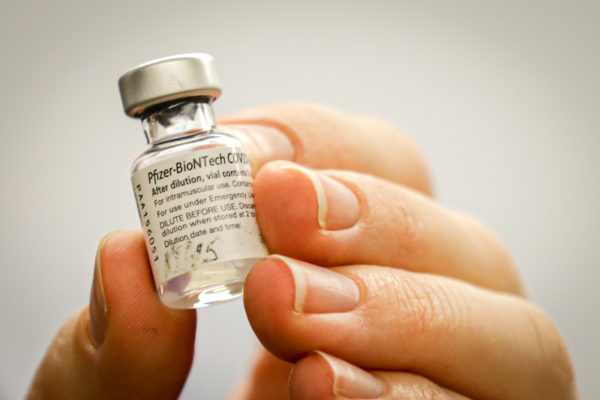
To readers:
Yesterday, Alaska Public Media published my story about tribal health vaccine distribution in Anchorage. The piece left out important context and hurt many readers, particularly Alaska Natives. For that, I’m sorry.
I worked closely on this story with two editors; all three of us thought that, with a careful approach, we could find a way to report on a sensitive and polarized issue without making it worse. The strong reaction wasn’t expected and was a lesson for us.
I spoke with Alaska Native people and institutions in the process of reporting, but I could have gone further and done better to understand the complexity that comes with conversations around the tribal health-care system. Our story left readers with an incomplete picture and did not capture the longstanding trauma inflicted on Alaska Native people around health-care and pandemic disease, and I’m grateful to the Native people who have helped me to better understand this over the past 24 hours.
The story grew out of what we thought were worthy questions about public health efforts and ethics, given the challenges experienced by the elderly, essential workers and other vulnerable Anchorage people who had been struggling to access the vaccine.
In the past, I’ve reported on both the crucial role tribal health-care organizations have played in distributing vaccine to both Native and non-Native Alaskans — and on the historical trauma that Alaska Native people have suffered from pandemic disease. But I left that essential context out of yesterday’s piece.
The reaction to the story has prompted intense reflection in our organization about how we can improve. We feel that there remains an important role for journalism in providing accountability for Alaska institutions, both non-Native and Native. But we acknowledge that there is a better approach than yesterday’s story.
This experience has demonstrated the urgency for us to form deeper, direct connections to the Alaska Native community, and to have more Native voices involved in shaping our coverage — not just from the outside of our institution, but from the inside.
If you have ideas or suggestions about how Alaska Public Media can bring more diverse voices into our newsroom, and into Alaska journalism more broadly, send News Director Lori Townsend an email: ltownsend@alaskapublic.org.
We’re also opening up our website and radio waves to a discussion about my story, its larger context and the emotions it provoked. We’d like to publish some constructive ideas and feedback about the piece; to submit something, email it to us at news@alaskapublic.org. And stay tuned for details on an upcoming radio program.
We’re eager to continue the conversations and advance the constructive dialogue that’s developed over the past 24 hours. I’m grateful to everyone who weighed in on this piece for providing me, and Alaska Public Media, with a valuable learning experience.
Thank you.
—Nat Herz
Nathaniel Herz is an Anchorage-based journalist. He's been a reporter in Alaska for a decade, and is currently reporting for Alaska Public Media. Find more of his work by subscribing to his newsletter, Northern Journal, at natherz.substack.com. Reach him at natherz@gmail.com.




